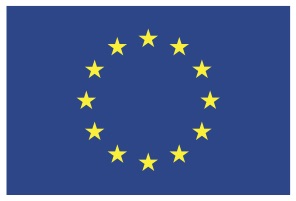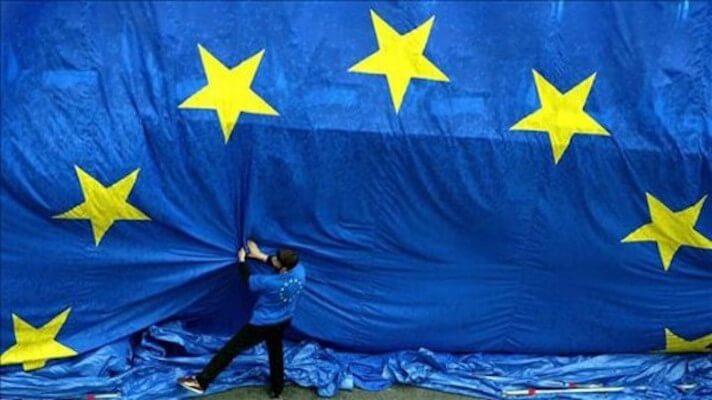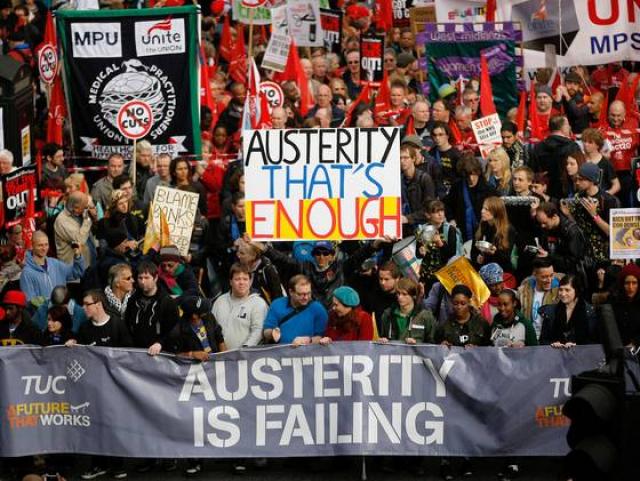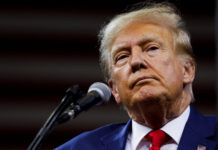“SOFIA” CLUB (All-European Initiative)
DECLARATION
Never, from the moment of its creation, has the European Union experienced a deeper crisis than today. The European Union, which now stands before us, is unrecognisably different to what its founders intended and the purpose for which it was created: peace and cooperation between its different parts, equality between countries and peoples regardless of their size, respect for fundamental human rights, a common role based on international legitimacy and recognition of the unlimited diversity of the present and future world. This Europe is now so different from the original project that it is unrecognisable even to the majority of its own people.
An anti-democratic, technocratic elite imbued with neo-imperialist ambitions sought to gain control of the main levers of power, including those of Europe, and is mortgaging democracy, freedom, coexistence of peoples, the very lives of individuals. We are all, almost invisibly, in the hands of a seemingly cosmopolitan oligarchy, but which in reality is without a soul, without memory, hostile to any sovereignty other than their own, and held together by the illusion of omnipotence that comes with ownership of infinite resources and infinite money that they created by fiat. Those who have usurped the levers of power are the “masters of the universe”, the owners of banks, funds, and shares in international corporations. The same people who now control the production of money. These are groups and people that none of us knows, that none of us has ever elected. They are acting through their servants, in formally elected parliaments, but now deprived of much of their original democratic legitimacy. And so the basis for a presumptive “new world order” was created. Yet it neither presents itself as “order”, nor as having “global” characteristics. Conversely it appears as an authoritarian and subversive hypothesis, supported by a few who are exceedingly rich and getting richer, against the impoverished vast majority of the population. The first fifteen years of the twenty-first century have already shown that this hypothesis can only increase chaos and violence.
Fearing a possible great rebellion, the universal masters are actively preparing to repress it. They know that they have imposed on the world neither economic nor monetary laws but stratagems for global deception. They foresee a risk that the immense mass of virtual money created by them to dominate the masses is likely to end up in ashes. Meanwhile they are knowingly destabilising the few remaining democratic institutions by preparing to use that mass of virtual money to privatise material wealth: from land, water, food, factories, savings, monuments of history and culture, to “human resources “. Eventually entire populations will be reduced to poverty and ignorance. Greece was the practical example of a broader strategy that is now entering its implementation phase. And this is the image of what remains of a Europe of peace and prosperity.
Europe is now dominated by US economic, military and political hegemony. The basic law that regulates this domination is the “Washingtonian consensus”. On this basis, American globalisation was imposed on Europe and a large part of the world. American rules were exported along with the ideas of “American democracy”. Deregulations, privatisation, dismantling of nation states, cultural homogenization, the deification of markets, transformation into goods of all forms of relations, including private ones. It was a carefully planned strategy and it continues. The TTIP treaty is the culmination of this strategy, which will complete the full subordination of Europe and its rules to those multinational corporations based in the United States, together with the subjugation of European democracies. In the USA, as well, the working population understands that this “free trade” brings them only loss of jobs and wages.
Everything, exactly as in the past, takes place in apparently legal forms, whilst in substance this constitutes a dramatic transfer of political powers – which are the prerogative of national sovereignty – into the private hands of large private financial concerns. European ruling classes bear serious responsibility for having allowed, without any resistance, this undemocratic expropriation of these forms of state power and people’s rights. First slowly and then without any restraint all values and stereotypes of the “American way of life” have been introduced to the European socio-economic-cultural structure by the same means. The progressive control and concentration of communications and mass information systems has produced a real anthropological shift in perception for a large number of European citizens. . The immense expansion of social networks collects data and metadata of the world population to be used by obscure players. The manipulation of public opinion has taken on an unprecedented dimension in comparison with past eras, accompanied by a decline of democratic institutions, which in turn, are deeply marked by political corruption. Furthermore, the development of a repressive legal framework in some European states, sometimes with the pretext of fighting terrorism, is one of the symptoms of the crisis of real democracy. Today the possibility of a democratic popular resistance is seriously compromised although not entirely eliminated. Ideological and technological aggression has found significant and unexpected obstacles in the deep currents of non Anglo-Saxon European history. But this resistance still lacks unity, and an organic vision of the global crisis, an anti-globalising and human ideology, able to meet the anti-human forces dominant today.
One of the crucial moments of this domination by the Washingtonian consensus was the presence of NATO. Do not forget that the Maastricht Treaty (which was in 1991 an anti-European coup d’état) contained the issue of “the General Foreign and security policy.” It was then called the European Union military dimension, which then found a more complete definition in 1998 in the documents on European security and defense policy. In all these legal steps, the key central element was the prime priority of NATO. Up to the European Parliament resolution of 2013 which gives NATO the exclusive role of command of the military structures of the European Union and of its defense policy.
The irresponsible steps had taken by the EU and NATO in order to expand in Eastern Europe, led to the sharpest security crisis over the past 70 years at European continent. Instead of forming a common economic and humanitarian space in collaboration with all the post-Soviet countries, the European Union became involved in a policy aimed at economic and political squeezing Russia out of the European region. In particular, this policy has been embodied in the EU’s Eastern Partnership program, which forced Ukraine and other countries of the former Soviet Union to start breaking the centuries-old economic ties with Russia. This policy led to the open military conflict in the east of Ukraine in 2014 and sanctions’ war between the EU and Russia.
During the last two years the evolution of military-political situation was a contradictory one. The West and Russia refrained from direct military confrontation in Syria and Ukraine. Truce was maintained on the East of Ukraine. However, the threat of war conflict in Europe was growing. Both sides were involved in a spiral of military escalation. Now the militarization of Europe and particularly of the Baltic Sea region is going on. US missile defence launchers have been commissioned in Poland and Romania. The West and Russia continue the information and psychological war. Military expenses are growing. American troops, including heavy offensive weapons are moved to Eastern Europe. NATO plans the deployment of maritime carriers of cruise missiles.
The European Union has proved unable to stop the slide toward war in Europe. Incapacity of European diplomacy is a consequence of dependant, the subordinate position of the EU in relations with the United States of America. Another reason of the EU weakness is the negative impact of Russophobia and revanchism of some Eastern European elites, trying get even with Russia by the EU hands for old historical insults.
We are facing the conclusion and convergence of various crises that are flowing towards a disruptive outcome: a sovereignty crisis, a crisis of values, institutional crisis, a crisis of consensus, economic crisis, political crisis. There are many rumors and predictions of a possible end of the European Union. But this will not be the most probable outcome. The bureaucratic and institutional machine that has been created over the years is huge, elephantine and yet powerful. The prediction of its swift demise is unrealistic. Its inertial force is large and it can cause faults that are just as large and dangerous. Moreover, the current state of the European Union and other relevant factors, still point to a certain consensus on its survival amongst both elites and in public opinion. Not all European citizens by far have a clear understanding of how the notion of a united Europe has suffered over the past two decades. So we need a realistic assessment both of the necessary time and efforts which will be necessary for its evolution.
That said, the growth of a broad popular aversion to the EU is now visible everywhere. Different kinds of skepticism, indifference, and the alienation of millions of citizens in every country from the European institutions grows at various speeds. At present the European project in its current state of development, is no longer able to face up to the challenges for which it was created and designed nor the purpose for which it was intended, or the expectations it created. There is therefore a clear need to launch a new European constitutional process which would repeal the treaty of Maastricht and the treaty of Lisbon, the pillars of the overthrow and distortion of the original European project. In their place we must restore a requirement for a popular referendum to approve a new Constitution. The clear definition of European sovereignty in the international context and the rejection of NATO as an essential instrument of European defence will be the decisive issues. But the neo-liberal dogma of the independence of the European Central Bank from the political elected bodies (and this has to be valid also fo the Central Banks of all the member states) also will have to be called into question to avoid the subordination of the EU to the rules and will of global banking and finance which are now the owners.
It is true that this European crisis is part of the West’s overall crisis. But it takes place and develops in particularly fragile conditions. It is not just in Europe that so-called “growth” has failed. The whole Western world isn’t growing and there is no forecast of future growth. We could say that we are seeing a breakdown of the propulsive thrust of the West as a whole.
However, European stagnation is maturing through a real political revolution across all European democracies, regardless of the political color of the successive governments in power. And the unifying reason for this is that the “social pact” between the ruling classes and the masses has failed, especially across the middle class that has most enjoyed in the past decades the social compact. Electoral support was provided in exchange for the benefits of the welfare state, peace, development, social order. This “exchange” does not work anymore. Entire social strata, including large sections of the middle classes, have slipped into poverty. Social tranquility has been dented. Terrorism whose provenance is still largely unknown has opened the door to serious attempts of limiting civil liberties. The unexpected, uncontrollable wave of refugees adds to the anxiety. For the first time since World War II, new generations know that the future before them will be worse than the life that their fathers and mothers enjoyed. Millions realise, albeit barely, that few are able to understand and meet their needs. They no longer feel represented or protected by the traditional parties to which they’ve been loyal.
This is happening in practice – and has become increasingly visible over the past five years – in all European countries. It involves both the left and the right. It is a general phenomenon. Large segments of voters, especially younger ones, no longer consider themselves supporters of parties who have represented them before. Therefore they seek other parties. Where opposition parties exist (and this is especially true on the right) there is a flow of support to them (in the case of France, partially in Italy). Where there are no opposition parties already formed, new political entities appeared on the scene. We have seen the most extreme cases in Britain, with the sudden explosion of UKIP; in Italy with the birth of the 5 Stars Movement, in Greece with the emergence of Syriza on the left, and Golden Dawn, on the right; in Spain with the emergence of Podemos, on the left, and Ciudadanos, on the right. These are just examples of a trend that has affected the whole of Western Europe, but that is manifesting itself in other countries, for example in Poland, Hungary, Finland, Latvia, Estonia, almost anywhere. The only exception is Germany, but it is an understandable exception being Germany, the only European country that has been able to preserve an image of relative prosperity. But also in Germany this tendence is appearing with the show off of a new party, Alternative for Germany, openly anti-euro and anti-Union oriented.
- But the general finding is that the two European conglomerates which have been the traditional right and the left, the People’s Party and the Social Democratic Party, are now perceived as allies with each other, both defenders of the status quo, both without a perspective of how to get Europe out of stagnation and paralysis, both without a vision for Europe as a subject capable of performing an autonomous role for peace and justice in a world context. Holding onto power and distributing the spoils of power between themselves has become an end in itself, institutionalising incompetence and corruption within European institutions.
The existence of a large gap to be filled is clear. It is equally clear that a new political force is needed to fill it. This political force can only emerge from a radical rejection of the disastrous experiences of both the traditional right and left which have contributed to the political and moral disaster that we are witnessing. It must therefore be a force that is open and syncretic, able to build and interpret the demands of a broad popular and democratic movement for the benefit of peace and humanity. A force that is capable of looking at the world, six billion men and women who represent the vast majority of contemporary humanity. A force which has as its main aim the collective common good and which rejects oppression and domination. A force that arises from the belief that the complexity of the global crisis is not only controllable by the West (which carries the main responsibility for the crisis) but requires the contribution of all civilisations, cultures and religions on the planet. A force that has the welfare of future generations as a core objective and makes the fight against climate change and the defence of real sustainability one of its priorities. A force which recognises that not only is Russia not an enemy to be resisted but it is a strategic partner to work with for their own interests and for world peace. A force that starts an extensive process of creating a new global architecture, in which China – a country crucial to future peace in the twenty-first century – has the proper role and prominence within the community of nations having equal rights. A force that works alongside with the so called “third world” in order to create a new democratic, peaceful and polycentric international order. A force that clearly rejects the imperial design of the United States of America as well as ambitions of the Mandarins in the European Commission and European Parliament and that speaks to the USA as a friend and equal partner.
Solving a problem of such magnitude is extremely difficult. We are aware that the difficulty is twofold: it means facing up to the complexity of the crisis on a new basis and, together, going against the tide on almost all current dominant conceptions. The idea behind this meeting is to initiate a common reflection that, starting from the two previous experiences – of Club Sofia and the Delphi Initiative, both in the previous two years have been working in this direction. It will probably be difficult to accomplish these tasks in short time, but we believe that the timing of the crisis does not leave us the option of doing nothing in the hope that something happens.
We know there are already several initiatives underway to build a Europe that’s different from the present, to democratize it, to make it independent, to remove it from the domination of global financial forces. Where these different initiatives are ongoing, motivated by concerns similar to ours, we will have to look at them and, where there are possibilities, consider ways of working together.
- Giulietto Chiesa (Italy), MEP (2004-2009); President of the Alternativa political association
- Pino Cabras (Italy), Redactor, MEGAchip website
- Javier Couso Permuy (Spain), MEP, Group United Left
- Gilbert Doctorow (USA), European Office, Committee on East-West Accord
- Inaki Irazabalbeitia (Basque Country); MEP (2013-2014), Board member of the Aralar political party
- Dimitrios Konstantakopoulos (Greece), redactor of the Epikaira Magazine
- Kostadinka Kuneva (Greece), MEP, Group United Left
- Giorgio Mazzerelli (Italy), Deputy director, PANDORA TV
- Anna Miranda (Galicia), MEP (2012-2013&2018-2019), Group Greens/EFA; Board member of the Bloque Nacionalista Galego political party
- Miroslavs Mitrofanovs (Latvia), Co-chairperson, Latvian Russian Union political party
- Janusz Niedzwiecki (Poland), Board member of the Zmiana political party
- Roberto Quaglia (Italy), science fiction writer, Alternativa association
- Dimitri Rempel (Germany), President, Einheit political party
- Bogdat Tirdea (Moldova), MP, Socialist party group
- Oleksii Tsvetkov (Ukraine), Association of National Minorities of the Black Sea
- Zakhari Zakhariev (Bulgaria), Member of a National Council of the Socialist Party; President of the Slavyani Foundation
- Tatjana Ždanoka (Latvia), MEP, Group Greens/EFA
Brussels, May 30, 2016











